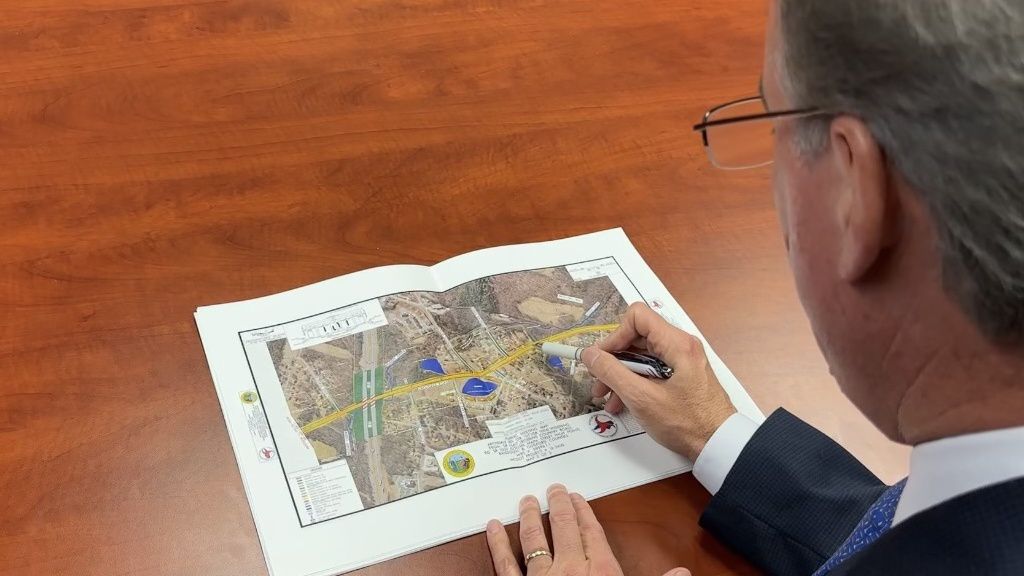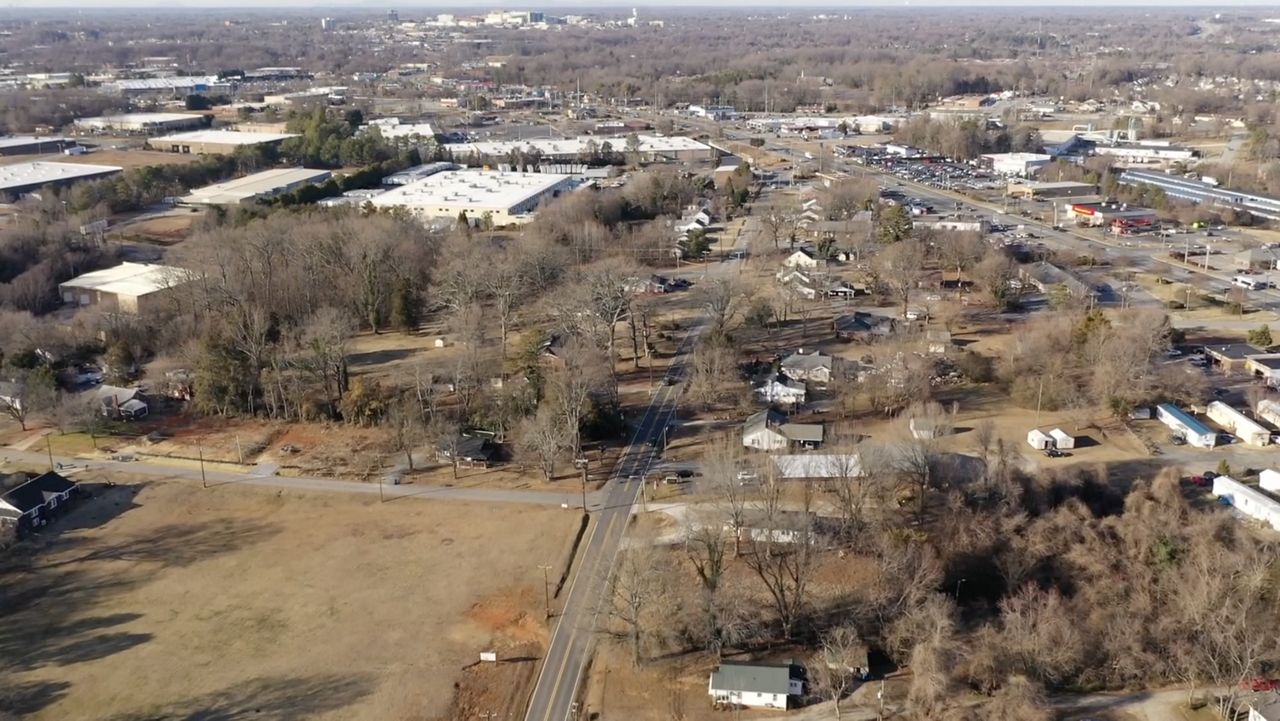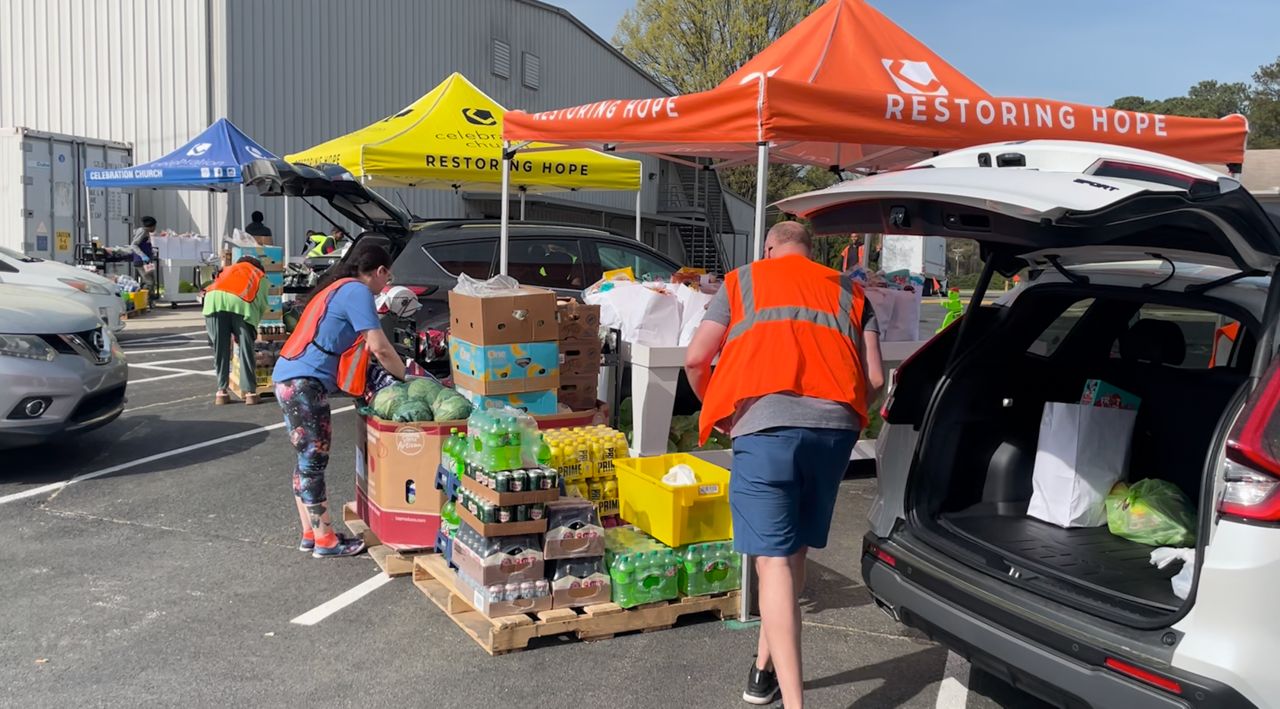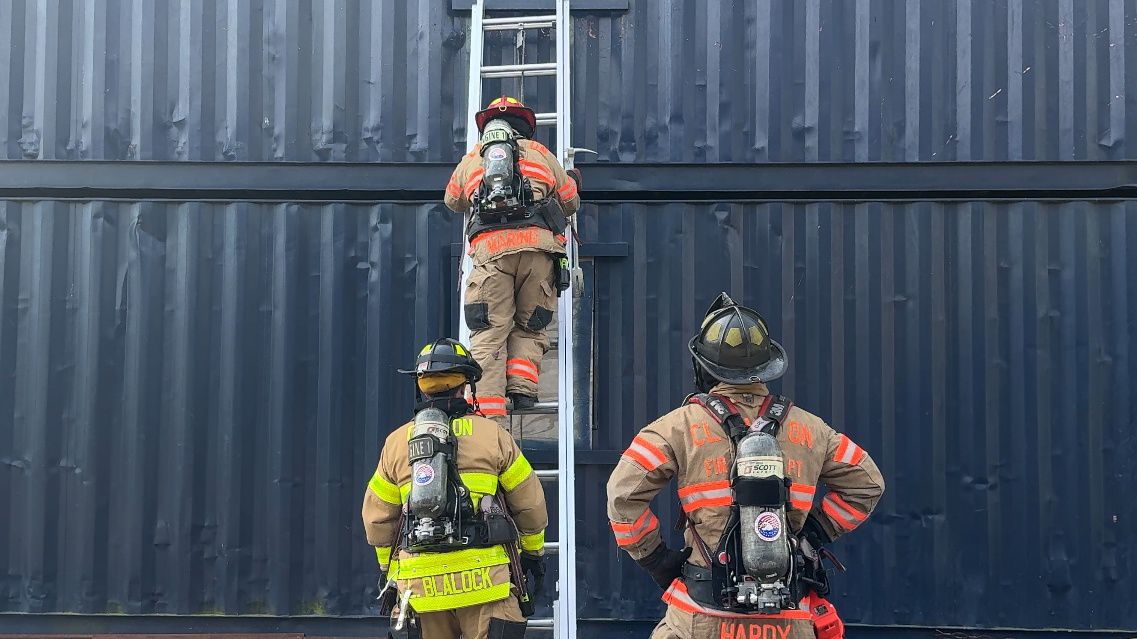GREENSBORO, N.C. — Eminent domain cases are on the rise in North Carolina as more new residents pour into the state and the shelf life on some roadways comes to end. Thankfully, funding from the Bipartisan Infrastructure Law has increased the improvement of bridges and roadways.
What You Need To Know
- Attorney Kevin Mahoney says he has seen an increase of eminent domain cases across the state
- Eminent domain is when the state takes land, homes or businesses for public use in trade or compensation
- The influx in cases is from the Bipartisan Infrastructure Law, increase of new residents and roadways' inabilities to keep up with the new need
- NC Eminent Domain Law Firm is holding a free seminar for those affected by the Archdale Road widening project on eminent domain laws
Eminent domain is when the state can take away your land, home or business for a public use in trade for just compensation.
This is protected under the Fifth Amendment to the U.S. Constitution that states “nor shall private property be taken for public use, without just compensation.”
The land could be used for roadways, schools, a fire department or anything that could be needed for public use.
Kevin Mahoney is an attorney with NC Eminent Domain Law Firm, which oversees the entire state of North Carolina.
“I always knew that I wanted to be a lawyer. I always knew that I wanted to advocate for people who were being injured. And I really just got lucky and falling into the eminent domain practice, because it turns out that not only do I like to help people, but I really like looking at maps. I like looking at aerials. I like looking [at] aerial photography. I like examining appraisal reports that deal with valuation of real estate. And so, I also like trying cases. And so all of those elements came together in the eminent domain practice. And so, I'm fortunate to have have found a gateway into this practice, and I enjoy it immensely,” Mahoney said.

He was as an assistant attorney general at the attorney general’s office, as well as a special deputy general in the state of North Carolina, and uses his knowledge to help residents, who are affected by eminent domain, to try to get more compensation that the owners see as fair.
“If it's a home, one of the questions we get is, 'well, how am I going to move? I can't find a house at this price with the interest rate I locked in years ago at two and three quarters. How am I going to be compensated for this?’ So their concern is really about the safety of their family and their home and their financial situation. Are they truly going to be made whole by N.C. DOT or are they going to be left in the negative? That's the major concern for homeowners. ‘Can I find safe and sanitary housing to move my family?’” Mahoney said.
The US Census Bureau says from July 1, 2022 to July 1 2023, North Carolina was the third-most moved-to state, with N.C. gaining 140,000 new permanent residents.
“North Carolina is one of the fastest growing states in the country. And so that in combination with the investment from the federal government in upgrading the roadway system, is causing DOT to utilize eminent domain to take private property in order to widen the roadways or in order to build new roadways and new locations,” Mahoney said.
The billions in funding from the Bipartisan Infrastructure Law is dedicated to improving roadways and infrastructure as many of them are no longer able to handle the modern-day traffic.
“The interstate highway system, as we all know, was initiated by President Eisenhower. And so under that system, a lot of roadways were built, including a lot of bridges. And so the useful life of those roadways in those bridges is coming up. And so, there's been a lot of investment on replacing a lot of bridges that may have gone through their useful life,” Mahoney said.
The 2005 Supreme Court case, Kelo v. City of New London gave a broader definition of what reasons the government could take the land for.
“One of the questions we get frequently is 'I don't want eminent domain. I don't want DOT or the state to take my property. Can I just say no and make them go away?’ Unfortunately, you can't. That gets to the holdout problem. In order for N.C. DOT to be able to build the roadways or the government to be able to build schools and firehouses, they can't be at the mercy of someone just saying, no, we're not going to build it. They wouldn't get anything done,” Mahoney said.
If the government does not take away your physical home or business, taking the land can also alter noise pollution, parking for businesses and even advertisement signs.

“They're [N.C. DOT] required to do is hire appraisers to go out and make an appraisal of the interest acquired and do an estimate of what their damages are. So what we do is we review those appraisals, and we look at the comparable sales that DOT is relied upon. We look at what the impacts will be to the property, even beyond the areas that DOT is taking,” Mahoney said.
A current project of eminent domain in North Carolina is the Archdale Road widening project that has been in the works for multiple years. The project will impact over 100 families and other areas of the community.
According to the N.C. DOT website, the project which will add sidewalks, a new turning lane, road widening, realignment of 90-degree intersections and more will not start construction until the fall of 2028, tentatively.
“Talk to some attorney who specializes in eminent domain before you agree to any settlement with DOT, because there may be impacts to your property that you can't see that a professional who does this every day can see. And so you want to make sure that you don't come to an agreement with DOT, and you find out later that the impacts to the property were really much greater than you thought that they were,” Mahoney said.
The NC Eminent Law Firm is holding a free seminar for the Archdale Road widening project on Jan. 25 for residents to learn more about eminent domain laws and their rights. Mahoney says the attorneys are welcoming other eminent domain case questions.
Spectrum News 1 did reach out to N.C. DOT for a comment on the increase of eminent domain cases in North Carolina. Below is its response:
"We agree we are delivering more projects on behalf of the communities we serve with the influx of growth and coming out of a pandemic in recent years, which inherently results in a potential for more right-of-way transactions. This is especially true in our metro areas where there are major infrastructure projects taking place.
At N.C. DOT we always work to identify the path that has the fewest impacts on people, properties and the environment, but in some cases this is unavoidable. Decisions are made balancing criteria, such as safety, impacts to the natural and human environment, costs and traffic service.
We are unable to forecast figures for 2024 because there is no way to predict the outcome of each right-of-way case."








